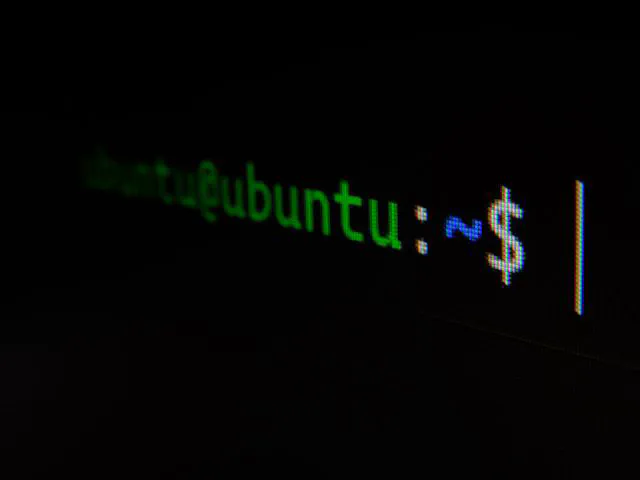Console snippets
 Photo by Gabriel Heinzer on Unsplash
Photo by Gabriel Heinzer on Unsplash
Table of Contents
The console offers a powerful way to interact with your system and increase your productivity.
Most snippets work in both Linux and MacOS terminals.
Here are some generic snippets to get you started:
Basic commands
Navigation
cd <directory>: Change directory. (e.g.cd Documents)pwd: Print Working Directory (shows your current location)ls: List directory contents (-lah –color for details and color)mkdir <directory>: Create a new directory
File manipulation
touch <filename>: Create an empty filecat <filename>: Display file contentscp <source> <destination>: Copy a filemv <source> <destination>: Move/Rename a filerm <filename>: Delete a file (use with caution!)
Permissions
chmod <permissions> <filename>: Change file permissions (owner, group, others)chown <owner>:<group> <filename>: Change file owner (with optional group)chgrp <group> <filename>: Change file groupsudo <command>: Run a command as superuser (root)su - <username>: Switch to another user account
System Information
whoami: Shows your current usernamew: Shows who is logged in and what they are doingdf: Show disk usage (-hT human-readable with filesystem type)blkid: Show block device informationfree -h: Show available memoryuname -a: Show detailed system informationlscpu: Show CPU informationlsb_release -a: Show Linux distribution information
Process Management
ps aux: List all running processestop: Monitor system resources and processeskill <PID>: Kill a process by its ID (-9 for force kill)
Help and Man Pages
man <command>: Get help on a specific command (detailed manual page)help: Get a list of built-in shell commandswhatis <command>: Get a brief description of a commandalias: List all aliases
Bonus
history: Show command history (-c to clean)!!: Repeat the last command (sudo !! to repeat last command as sudo)exit: Exit the terminal (or CTRL-D)
These are just a few basic snippets. There’s a vast amount of functionality available in the Linux console. Explore the man pages for in-depth information on specific commands.
One liners
Console one-liners are powerful commands that condense complex tasks into a single line
File and directory manipulation
Search and replace text across all files in a directory:
find . -type f -exec sed -i 's/old_text/new_text/g' {} \;
Count lines in all files within a directory:
find . -type f -exec wc -l {} \; | awk '{sum += $1} END {print sum}'
Change permissions of all files in a directory (recursively):
find -type f -exec chmod 644 {} \;
Change permissions of all directories in a directory (recursively):
find -type d -exec chmod 755 {} \;
Convert all JPGs in current directory to PNGs:
for file in *.jpg; do convert "$file" "${file/.jpg/.png}"; done
Extract all ZIP files in a directory with correct folders
find -type f -name *.zip -execdir unzip -o '{}' \;
System Administration
List all processes using more than 10% CPU:
ps aux | awk '{if ($3 > 10) print $2}'
Find the largest file in a directory:
find . -type f -exec du -s {} \; | sort -nr | head -n 1
Network Tools
Ping a website and display response time:
ping -c 3 google.com | grep time | awk '{print $7}'
Download a file from a URL:
wget https://example.com/file.txt
#or
curl -O https://example.com/file.txt
- Scan a network for active hosts:
nmap -sn 192.168.0.0/24
- Scan many networks for active hosts and ports:
nmap 192.168.33.0/24 192.168.42.0/24
Remember: Be cautious when using one-liners, especially those involving deletion or modification. Test them on a small scale before applying them broadly.
These are just a few examples. Explore the web for more advanced one-liners using tools like grep, awk, and sed for powerful text manipulation.
Specific snippets
Find and delete .DS_Store files:
find . -type f -iname .DS_Store -exec rm -i {} \;
Resize tmpfs partition
mount -o remount,size=4G,noatime /tmp
Fix TMPDIR=/tmp cannot hold executables (partition possibly mounted with noexec)
sudo mount -o remount,exec /tmp
Update secureboot keys after NVIDIA driver upgrade (for Ubuntu with secureboot enabled / dual boot)
sudo update-secureboot-policy --enroll-key
Update outdated pip packages
pip list --outdated --format=freeze | grep -v '^\-e' | cut -d = -f 1 | xargs -n1 pip install -U
Change display brightness with xrandr
xrandr --output eDP --brightness 0.6
Turn keyboard Scroll Lock on
xset led named "Scroll Lock" on
Update all git repositories under a folder, recursively
find . -mindepth 1 -maxdepth 1 -type d -exec git --git-dir={}/.git --work-tree=$PWD/{} pull \;
Miscellaneous tips
For the best terminal filemanager check the post:
MC: a commander like no other
Use Ctrl + R to search through your command history
Use Ctrl + C to cancel a running command
tmux and htop are great tools for managing terminal sessions and monitoring system resources
ncdu is a great tool for analyzing disk usage